Passing the NREMT is a big hurdle to becoming an EMT. You might wonder what percentage you must pass and how long it takes to get an EMT certification. Knowing these details can help you plan your study schedule and avoid unnecessary stress. This guide will explain everything you need to know about passing the NREMT, including how the exam is scored and how long does it take to get an EMT certification. To help you prepare for the NREMT, Paramedic Flash offers paramedic pharmacology cards that can help you study and remember critical information. These cards are a great way to review essential concepts and prepare for the exam.
NREMT and Passing Requirements

What’s the NREMT All About?
The National Registry of Emergency Medical Technicians (NREMT) is the leading certification body for EMS in the United States. It puts future EMTs and paramedics to the test, ensuring they’ve got what it takes to handle emergencies. The exam has two parts: a cognitive exam that shifts in difficulty based on your answers and a hands-on psychomotor exam. Think of it as a way to ensure you’re not just book-smart but also ready to react in real-world scenarios.
What’s the Passing Score for the NREMT Exam?
You must score at least 70% to pass the NREMT cognitive exam. This number isn’t pulled out of thin air. It measures your competency in the critical areas of emergency medical services. The goal is to ensure that only those who know their stuff are out there providing patient care.
How Does the NREMT Scoring Work?
The NREMT scoring method is unique. It’s not just about counting how many questions you get right. The computer-adaptive test adjusts the question difficulty based on previous answers, meaning the test ends when the system determines you’re consistently competent. You might see anywhere from 70 to 120 questions. The end game is to reflect your overall knowledge and skill proficiency, not just tally up correct answers.
What Topics Does the NREMT Cover?
The exam isn’t just a bag of random questions. It covers essential topics like patient assessment, medical and trauma emergencies, cardiac arrest and resuscitation, EMS operations, and pharmacology. These areas ensure you can respond effectively and provide high-quality emergency care.
Related Reading
The Importance of NREMT Certification

Boost Your Credibility with NREMT Certification
Think of the NREMT certification as your golden ticket in the EMS field. It’s recognized nationwide, making it easier to demonstrate your capabilities no matter where you are. This credential doesn't just show that you’ve met rigorous standards—it tells employers, colleagues, and patients that you’re serious about delivering top-notch care.
Open Doors to More Job Opportunities
Want to stand out in a crowded job market? The NREMT certification can help you do just that. Many hospitals, ambulance services, and fire departments prefer hiring certified candidates. This means more opportunities and a broader range of choices regarding your career path.
Deliver High-Quality Care When It Matters Most
The certification process isn’t just about passing a test—it’s about ensuring you know your stuff regarding emergency medical care. With written exams and hands-on assessments, the NREMT ensures you can apply your knowledge when it counts. This focus on skill and understanding is crucial for providing the best care in high-stress situations.
Keep Learning and Growing in Your Career
Getting your NREMT certification is just the beginning. Many states require ongoing education to maintain your credentials. This emphasis on continuous learning helps you stay updated with the latest advancements and best practices in emergency medicine, ensuring you’re always at the top of your game.
Build a Strong Network in the EMS Community
Earning your certification can open up networking opportunities within the EMS community. You’ll connect with others through training programs, workshops, and professional organizations. These connections can provide valuable resources, mentorship, insights into job openings, industry trends, and continuing education.
Want to boost your skills and confidence in the field? Try our paramedic pharmacology flashcards today. At Paramedic Flash, we've helped students decrease failure rates and become more powerful paramedics and EMTs.
Related Reading
NREMT Exam Structure and Passing Percentage

How the NREMT Exam is Structured
Getting your EMT certification means mastering the NREMT exam. It’s split into two essential parts: the cognitive and psychomotor exams. The cognitive exam is a computer-based test with multiple-choice questions. Expect 70 to 120 questions covering patient assessment, airway management, medical emergencies, and more. The test adapts as you answer, adjusting the difficulty based on your responses. The psychomotor exam is all about showing off your skills. You'll demonstrate EMS procedures like CPR and airway management before an evaluator. This usually takes about 20-30 minutes.
What You Need to Pass
You need a scaled score of 70 or higher to pass the cognitive exam. The score might vary based on how challenging the exam is, but that’s the general target. The psychomotor exam is more straightforward in terms of scoring: it’s pass or fail. You’ll need to nail all the required skills to pass. Knowing these criteria can help you focus your studies and prepare effectively for the exam.
At Paramedic Flash, we’ve got resources to help you succeed. Our paramedic pharmacology flashcards use color-coded text and imagery to make learning easier, especially for those with learning disabilities. Try them today to boost your confidence and skills!
Study Tips for Passing the NREMT Exam

Master the Clock: Crafting Your Study Schedule
Time management is your first hurdle. Set aside specific hours each week for studying, breaking it down into chunks that let you breathe. Focus on areas where you’re shaky, but don’t ignore your strong points. Mix it up.
Equip Yourself: The Right Study Materials Matter
Lean on official resources like the NREMT study guide and practice tests. They align well with the test. Get some solid EMS textbooks or enroll in an online course that guides you with structured content.
Test Yourself: Practice Makes Proficient
Dive into mock exams to get used to the real deal. A variety of question types will cover your bases. Question banks are gold mines for drilling knowledge and sharpening test-taking skills.
Team Up: The Potential of Study Groups
Studying with others can boost your understanding. Group members can quiz each other and clear up tricky concepts. Plus, you’ll keep each other on track with your study goals.
Get Hands-On: Practice Practical Skills
Don’t just focus on the books. Hands-on practice is crucial. Find actual or simulated scenarios to improve skills like CPR and airway management. If your EMS program offers lab sessions, go for them and get instructor feedback.
Take Care of You: Your Well-Being Matters
Keep a balanced diet, exercise, and get enough sleep. A healthy body supports a sharp mind. Use relaxation techniques like deep breathing or meditation to keep stress in check, especially as test day nears.
Become A More Powerful Paramedic & EMT with Our Paramedic Pharmacology Flashcards
EMT Certification Timeline
Becoming an EMT requires dedication and effort. The journey begins with enrolling in a state-approved EMT program, which typically lasts 120 to 150 hours. These programs usually take 1 to 3 months to complete, depending on the schedule. After finishing your coursework, you’ll take the NREMT exam. Passing this exam is crucial. You need to score above 70% to succeed. After that, you'll complete any state-specific requirements. Altogether, you’re looking at about 3 to 6 months to get certified.
Paramedic Flash: A Game-Changer for EMT Students
Paramedic Flash is a powerful tool for EMT and paramedic students, especially those with learning disabilities. Our flashcards use color-coded text and matching imagery to make the material more accessible. We've seen a drop in failure rates and a boost in students' confidence. Our 72 personalized drug cards break down complex information into manageable chunks, including med math. Our students love us—just check out our 4.9/5 rating across the US. Give our paramedic pharmacology flashcards a try to level up your skills in the field.


